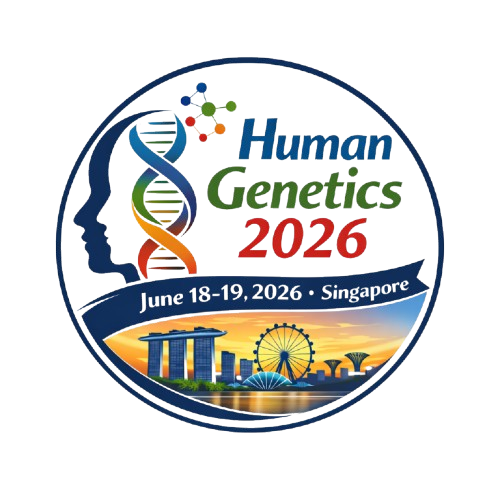Transplantation (DNA)
Transplantation is the exchange (engraftment) of human cells, tissues or organs from a benefactor to a beneficiary with the point of reestablishing function(s) in the body. At the point when transplantation is performed between various species, e.g. creature to human, it is named xenotransplantation. Improvement of the field of organ and tissue transplantation has quickened amazingly since the human significant histocompatibility complex (MHC) was found in 1967. Coordinating of giver and beneficiary for MHC antigens has been appeared to have a huge constructive outcome on join acknowledgment. The parts of the diverse segments of the safe framework engaged with the resilience or dismissal of unions and in join versus-have ailment have been cleared up. These parts include: antibodies, antigen introducing cells, partner and cytotoxic T cell subsets, resistant cell surface particles, flagging components and cytokines that they discharge. The improvement of pharmacologic and natural specialists that meddle with the alloimmune reaction and unite dismissal has had a significant part in the accomplishment of organ transplantation Combinations of these operators work synergistically, prompting lower measurements of immunosuppressive medications and diminished harmfulness. Reports of huge quantities of effective strong organ transplants incorporate those of the kidneys, liver, heart and lung. The utilization of bone marrow transplantation for hematological infections, especially hematological malignancies and essential immunodeficiency's, has turned into the treatment of decision in huge numbers of these conditions.
Related Conference of Transplantation (DNA)
21th World Congress on Tissue Engineering Regenerative Medicine and Stem Cell Research
16th International Conference on Human Genetics and Genetic Diseases
19th International Conference on Genomics & Pharmacogenomics
Transplantation (DNA) Conference Speakers
Recommended Sessions
- Computational biology
- Immunogenetics
- Molecular and Cellular Genetics
- Bioinformatics in Human Genetics
- Cancer Genetics
- Cell signaling
- Cytogenetics
- Epigenetics
- Genetic Counseling and Gene therapy
- Genetic Disorders
- Genome Integrity
- Human Genetics
- Medical Genetics
- Pharmacogenetics
- Population and Evolutionary Genetics
- Stem Cell research and Therapy
- Structural Biology
- Techniques used in Genetics
- Transplantation (DNA)
Related Journals
Are you interested in
- 3D Bioprinting, Organ Fabrication & Bioartificial Tissues - Stem Cell 2026 (Netherlands)
- Aging Biology, Longevity Science & Cellular Rejuvenation - Stem Cell 2026 (Netherlands)
- Animal Genetics - Genome 2026 (Singapore)
- Artificial Intelligence and Computational Biology in Regenerative Medicine - Stemgen 2026 (Japan)
- Bioinformatics and Computational Biology - Genome 2026 (Singapore)
- Bioinformatics, AI Models & Predictive Regeneration - Stem Cell 2026 (Netherlands)
- Biomarkers and Microarrays - Genome 2026 (Singapore)
- Biomaterials and Nanotechnology in Regenerative Medicine - Stemgen 2026 (Japan)
- Cancer Genomics - Genome 2026 (Singapore)
- Cancer Stem Cells & Targeted Therapeutics - Stem Cell 2026 (Netherlands)
- Cancer Stem Cells and Oncology - Stemgen 2026 (Japan)
- Cardiac, Vascular & Musculoskeletal Regeneration - Stem Cell 2026 (Netherlands)
- Cardiovascular Regeneration - Stemgen 2026 (Japan)
- Clinical genomics - Genome 2026 (Singapore)
- Clinical Translation of Stem Cell Therapies - Stem Cell 2026 (Netherlands)
- Clinical Trials and Translational Stem Cell Research - Stemgen 2026 (Japan)
- Commercialization, Biobanking & Industry Innovations - Stem Cell 2026 (Netherlands)
- Comparative Genomics - Genome 2026 (Singapore)
- Epigenomics and Epigenetics - Genome 2026 (Singapore)
- Ethical, Legal, and Social Implications in Stem Cell Research - Stemgen 2026 (Japan)
- Ethical, Regulatory & Quality Control Frameworks - Stem Cell 2026 (Netherlands)
- Exosomes, Extracellular Vesicles & Cell-Free Therapeutics - Stem Cell 2026 (Netherlands)
- Functional Genomics - Genome 2026 (Singapore)
- Future Trends: Organoids, Bioengineering, and Next-Generation Therapies - Stemgen 2026 (Japan)
- Gene Editing and CRISPR Technologies - Stemgen 2026 (Japan)
- Gene Editing and Genetic Engineering - Genome 2026 (Singapore)
- Gene Editing, CRISPR Therapies & Regenerative Genomics - Stem Cell 2026 (Netherlands)
- Genetic Disorder - Genome 2026 (Singapore)
- Genomic Instability - Genome 2026 (Singapore)
- Genomic Medicine - Genome 2026 (Singapore)
- Induced Pluripotent Stem Cells (iPSCs) and Reprogramming - Stemgen 2026 (Japan)
- Mesenchymal Stem Cells (MSCs) in Therapy - Stemgen 2026 (Japan)
- Microbial Genomics - Genome 2026 (Singapore)
- Next generation sequencing - Genome 2026 (Singapore)
- Nutrigenomics - Genome 2026 (Singapore)
- Personalized and Regenerative Medicine - Genome 2026 (Singapore)
- Pharmacogenomics - Genome 2026 (Singapore)
- Plant Genomics and Molecular Pharming - Genome 2026 (Singapore)
- Regeneration in Neurodegenerative & Spinal Cord Disorders - Stem Cell 2026 (Netherlands)
- Regenerative Approaches in Diabetes & Metabolic Disorders - Stem Cell 2026 (Netherlands)
- Regenerative Dentistry and Craniofacial Applications - Stemgen 2026 (Japan)
- Regenerative Immunology & Immune Modulation - Stem Cell 2026 (Netherlands)
- Regenerative Medicine and Tissue Engineering - Stemgen 2026 (Japan)
- Stem Cell Banking and Cryopreservation - Stemgen 2026 (Japan)
- Stem Cell Biology and Cellular Mechanisms - Stemgen 2026 (Japan)
- Stem Cell Engineering & Cellular Reprogramming - Stem Cell 2026 (Netherlands)
- Stem Cells in Neurological and Neurodegenerative Disorders - Stemgen 2026 (Japan)
- Structural Genomics - Genome 2026 (Singapore)
- Tissue Engineering, Biomaterials & Smart Scaffolds - Stem Cell 2026 (Netherlands)
- Trends in Genomics and Pharmacogenomics - Genome 2026 (Singapore)

